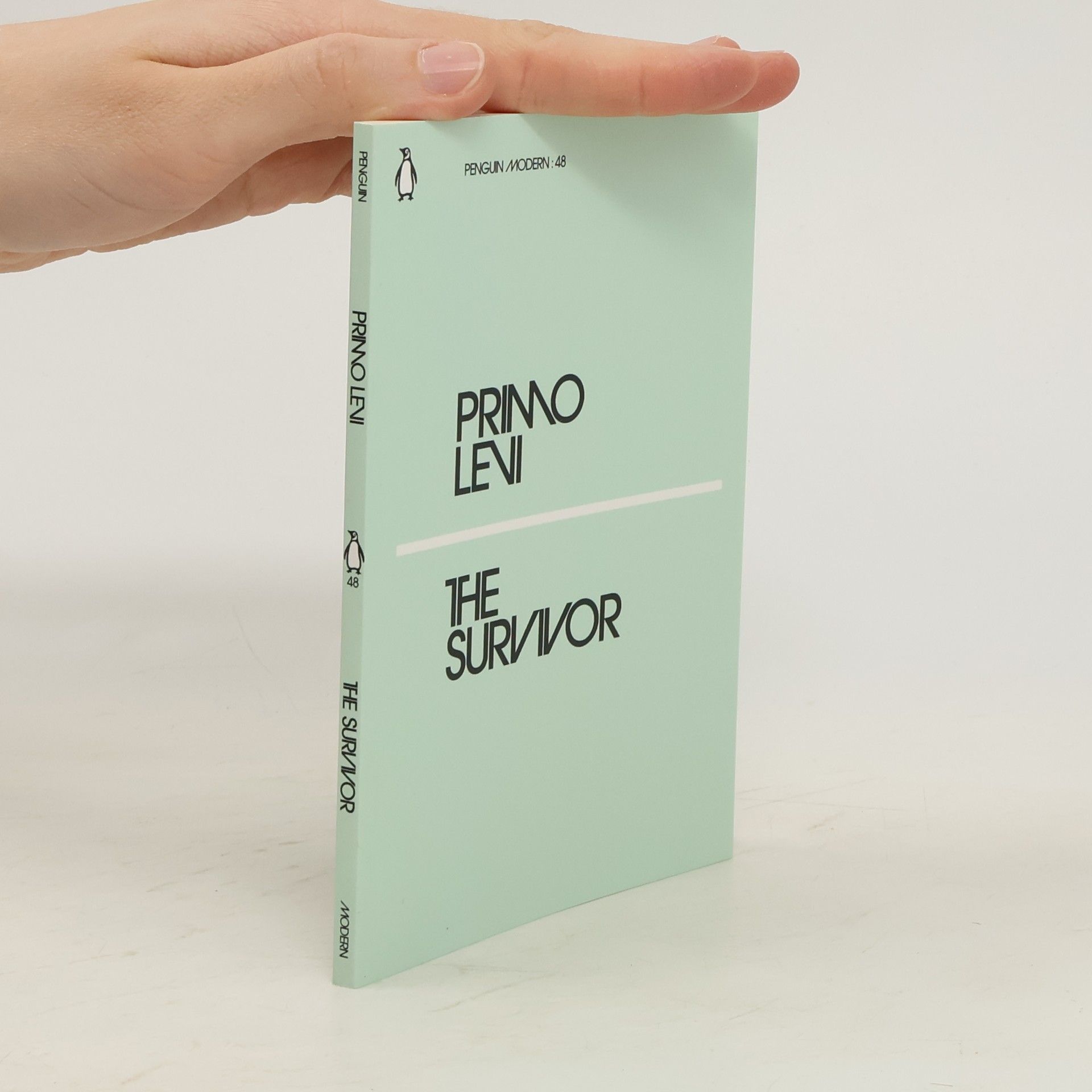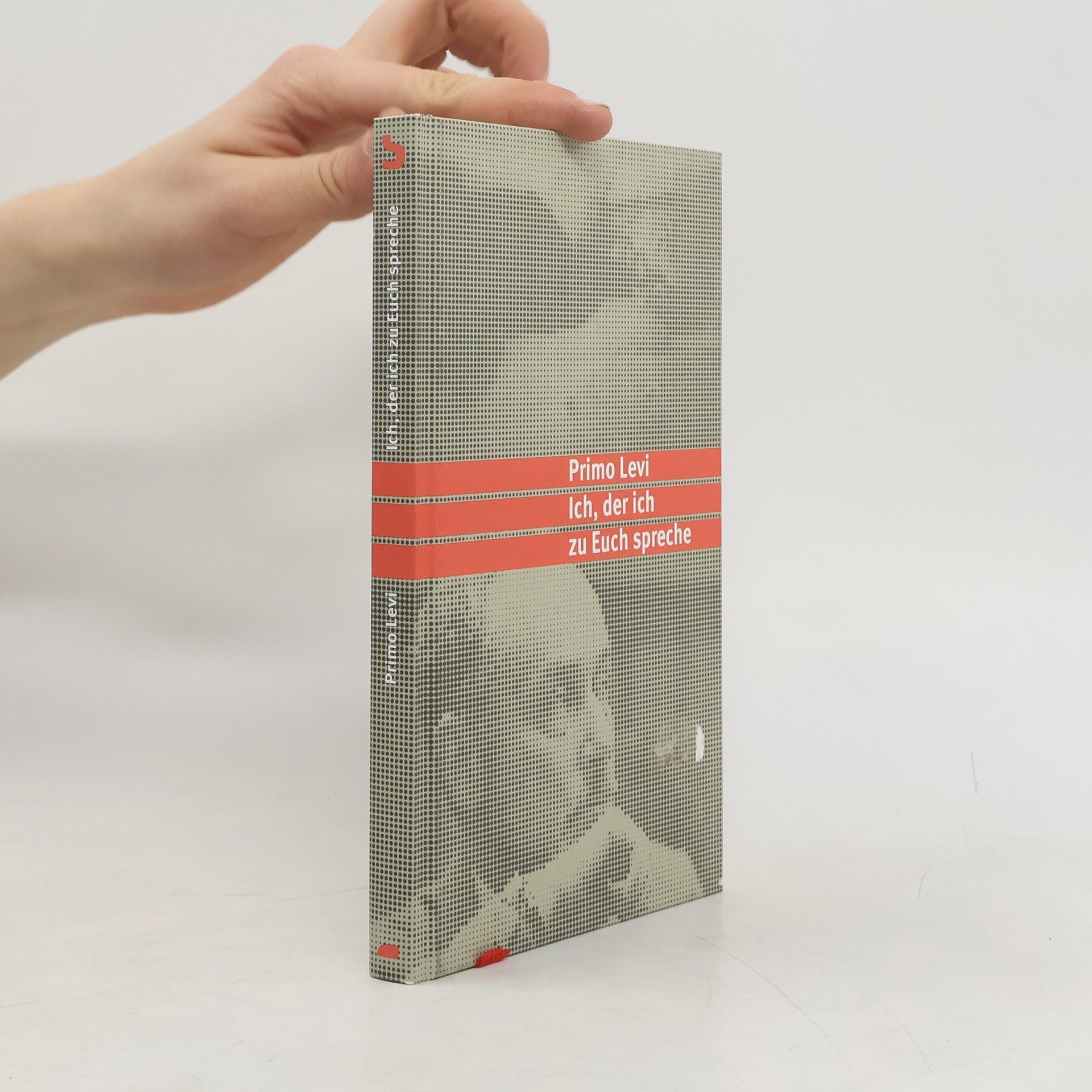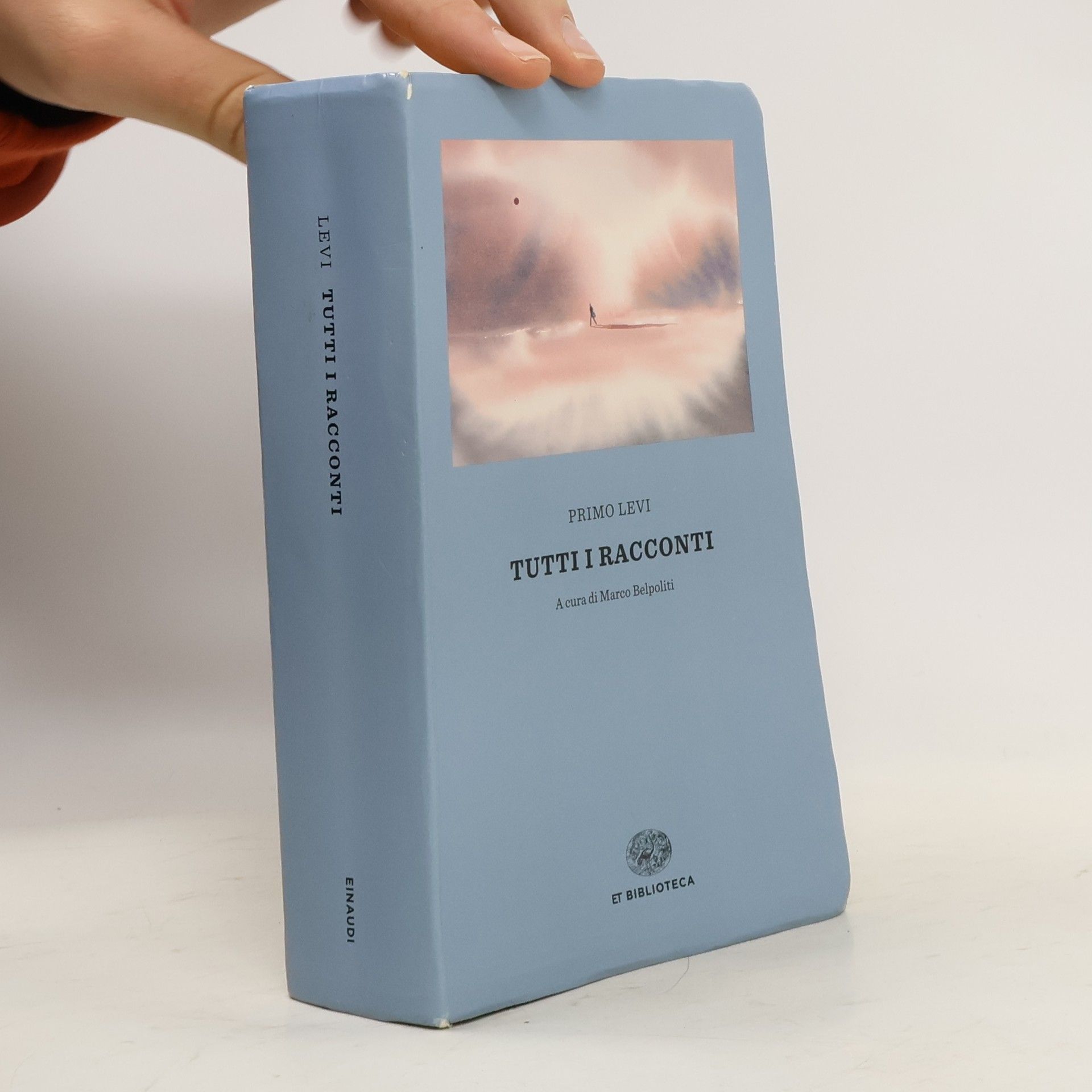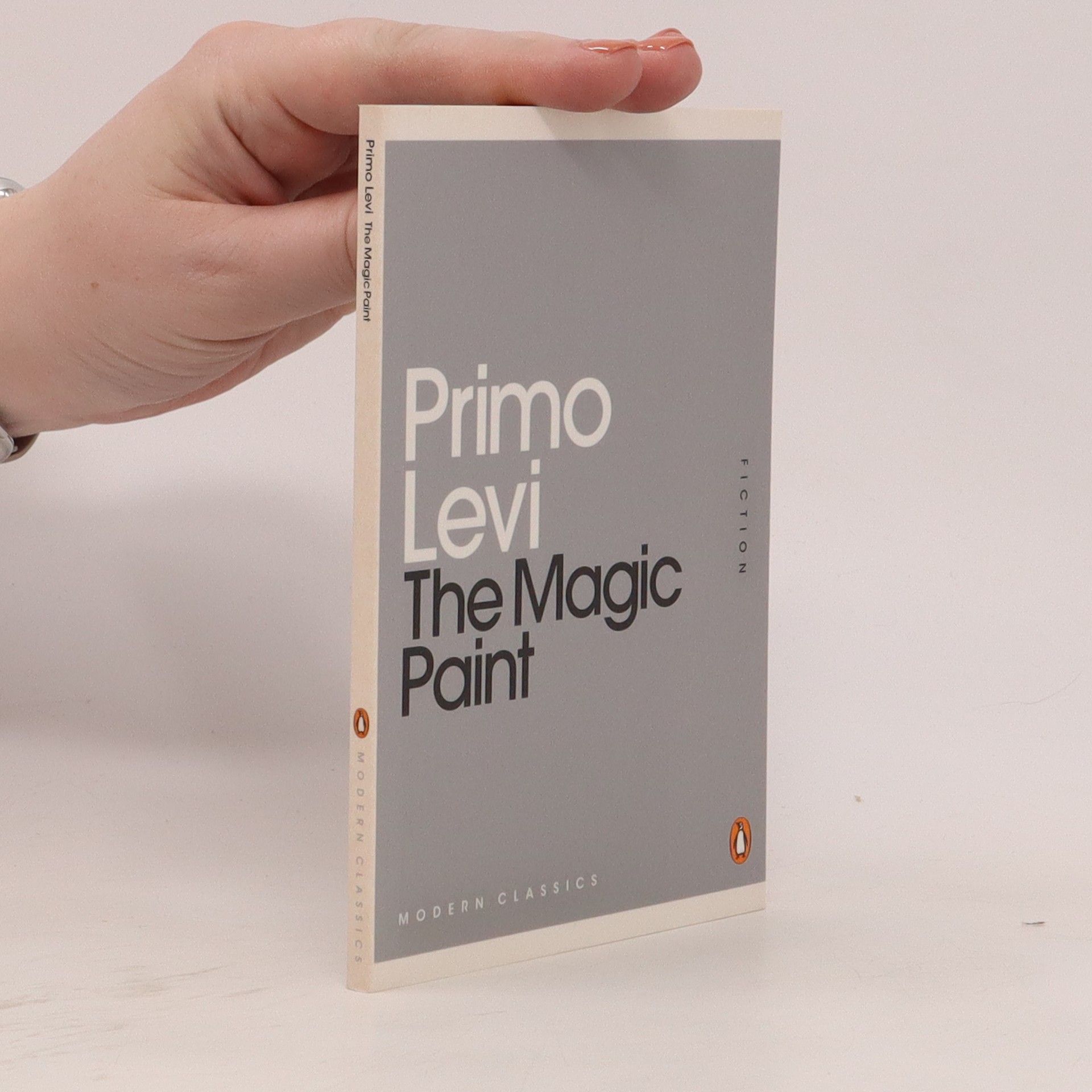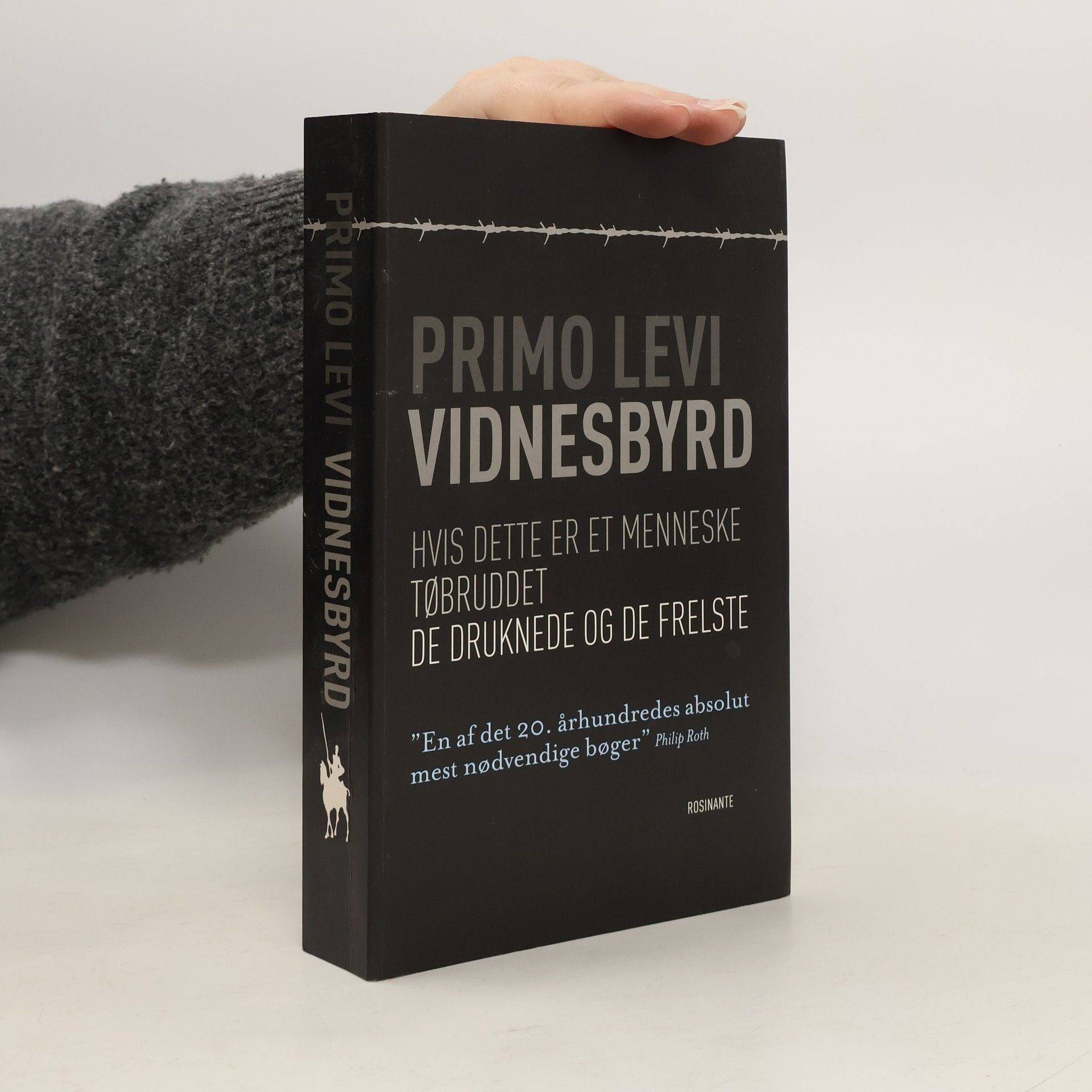Ze wstępem Dariusza Czai Można by rzec, że odyseja obozowa kończy się mimo wszystko szczęśliwie – bohater ocalał. Jednak Levi, podobnie jak wielu innych więźniów nazistowskich obozów, wraca do punktu wyjścia już jako zupełnie inny człowiek: naznaczony, spopielały, z trawiącym go poczuciem wstydu z powodu tego, że przeżył. Levi opuścił Auschwitz, ale Auschwitz nie opuściło go nigdy. Przenikało jego życie i jego myślenie niedostrzegalnie, ale skutecznie, aż do niejasnej, zagadkowej śmierci w kwietniu 1987 roku. Rok pobytu w obozie zagłady naznaczył go na resztę życia. To znamienne: o swoich obozowych przeżyciach opowiadał niemal zaraz po wyjściu za bramę, zagadywał przypadkiem poznanych w powrotnej drodze ludzi i mówił, mówił, mówił… Wspominał chwile spędzone za drutami, przytaczał fakty, dawał świadectwo, odczuwał bowiem – jak wspominał po latach – nieodpartą, kompulsywną niemal potrzebę, by opowiedzieć o tym, co przydarzyło się w obozie jemu i jego towarzyszom. Cały czas miał niestygnące poczucie powinności, świadomość, że opowiada przeciw zapomnieniu, że opowiada, aby pamiętać. Wiedział, że jest w posiadaniu cennej i osobliwej wiedzy; wiedzy danej nielicznym. I dzielił się nią hojnie przez całe życie. Ze wstępu
Primo Levi Book order (chronological)
Primo Levi was a chemist and writer whose works explore the human experience, memory, and ethics with profound insight. His writing, often drawing from his personal experiences, is characterized by a calm precision and a remarkable ability to comprehend the complexities of human nature. He crafted enduring works that reflect on the dangers of hatred and the importance of moral fortitude.




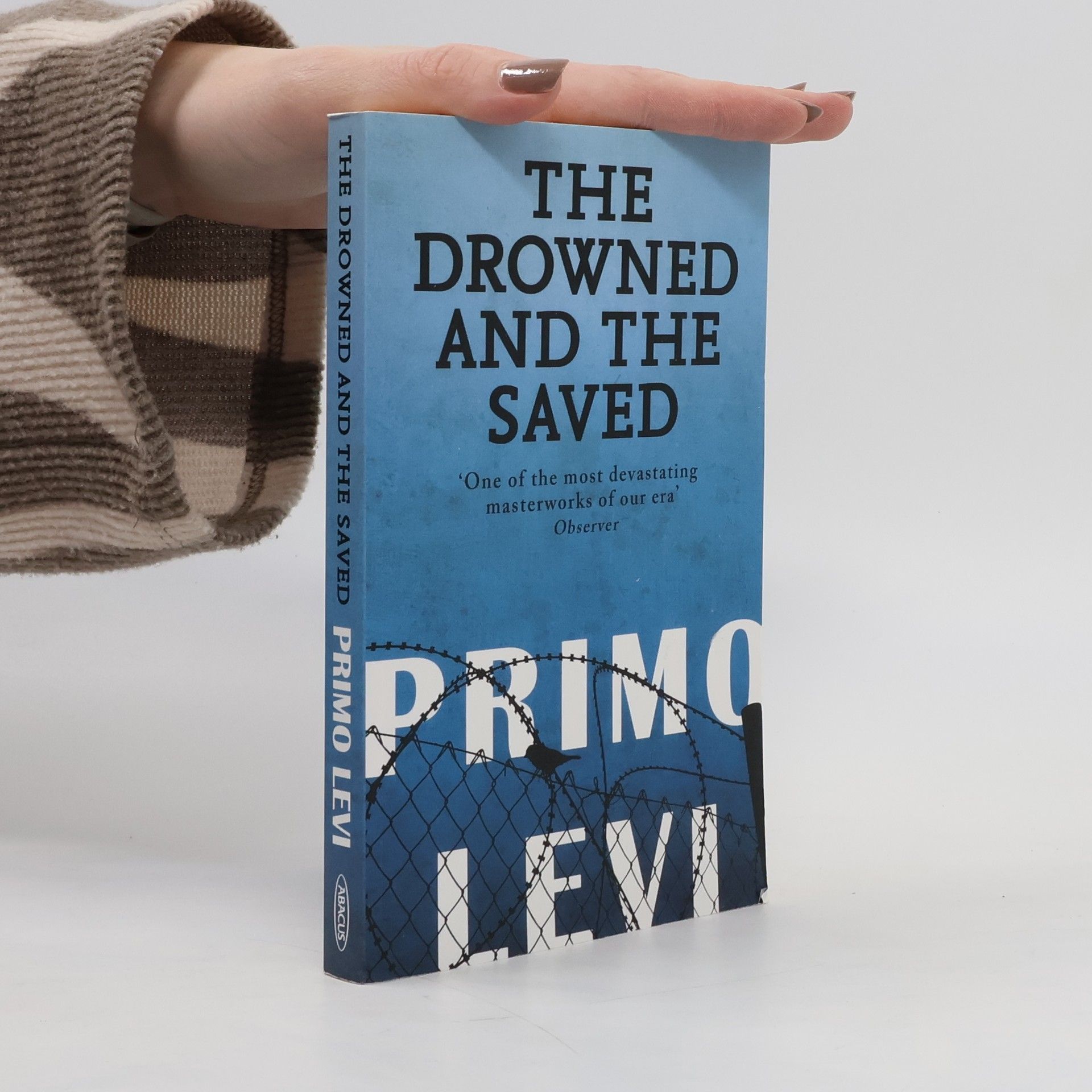


If This Is A Man/The Truce (50th Anniversary Edition): Surviving Auschwitz
- 464 pages
- 17 hours of reading
Levi's account stands out as a pioneering Holocaust testimony, crafted before the genre was formally recognized. It serves as a direct and painstakingly detailed diary, capturing the harrowing experiences of survival in unimaginable conditions. The narrative's straightforwardness enhances its impact, offering readers an unfiltered glimpse into the horrors faced during this dark chapter of history.
La collection Fichebook vous offre la possibilité de tout savoir de Si c'est un homme de Primo Levi grâce à une fiche de lecture aussi complète que détaillée. La rédaction, claire et accessible, a été confiée à un spécialiste universitaire. Cette fiche de lecture répond à une charte qualité mise en place par une équipe d'enseignants. Ce livre contient: - La biographie de Primo Levi - La présentation de l'oeuvre - Le résumé détaillé (chapitre par chapitre) - Les raisons du succès - Les thèmes principaux - L'étude du mouvement littéraire de l'auteur
If This Is A Man/The Truce
- 400 pages
- 14 hours of reading
Primo Levi's account of life as a concentration camp prisoner falls into two parts. IF THIS IS A MAN describes his deportation to Poland and the twenty months he spend working in Auschwitz. THE TRUCE covers his long journey to Italy at the end of the war through Russia and Central Europe. Levi never raises his voice, complains or attributes blame. By telling his story quietly, objectively and in plain language he renders both the horror and the hope of the situation with absolute clarity. Probing the themes which preoccupy all his writing - work love, power, the nature of things, what it is to be human - he leaves the reader drained, elated, apprehensive. With the moral stamina and intellectual pose of a twentieth-century Titan, this slightly built, duitful, unassuming chemist set out systematically to remember the German hell on earth, steadfastly to think it through, and then to render it comprehensible in lucid, unpretentious prose. He was profoundly in touch with the minutest workings of the most endearing human events and with the most contemptible
The Survivor
- 64 pages
- 3 hours of reading
Back, away from here, drowned people, go. I haven't stolen anyone's place' A selection of poetry from the author of If this is a Man and The Periodic Table. From the writer who bore witness to the twentieth century's darkest days, these verses of beauty and horror include the poem that inspired the title of his memoir, If This Is a Man.
Ich, der ich zu Euch spreche. Ein Gespräch mit Giovanni Tesio
- 176 pages
- 7 hours of reading
Im Januar 1987 nahm Primo Levi den Vorschlag des Kritikers Giovanni Tesio an, gemeinsam eine Biografie zu schreiben. Beide waren sich der Herausforderungen bewusst, die vor ihnen lagen, als sie zu ihrem ersten Gespräch zusammentrafen. Levi, der unter Depressionen litt und sich auf eine Operation vorbereitete, bat Tesio, seine „Geständnisse“ zu „übersetzen“ und die Gedanken des Auschwitz-Zeugen zu deuten. Es fanden nur zwei weitere Treffen statt, bevor Levi am 11. April 1987 aus seiner Wohnung stürzte. Die Umstände seines Todes – ob Unfall oder Suizid – sind bis heute umstritten. Seine Witwe schloss einen Freitod aus und verhinderte die Veröffentlichung der Gespräche. In diesen Äußerungen zeigt sich Levi so offen wie selten zuvor und spricht über seine Universitätszeit, Beziehungsprobleme, den Faschismus und den Widerstand. Dabei sucht er oft die Schuld bei sich selbst und reflektiert über seine politische Naivität. Obwohl die Biografie nicht zustande kam, bietet dieses Protokoll einen tiefen, persönlichen Einblick in Levis Selbstverständnis als Autor, der das Schreiben als Pflicht betrachtete. Maike Albath, die das Nachwort verfasst hat, ist Journalistin und hat mehrere Bücher veröffentlicht. Sie lebt in Berlin.
So war Auschwitz
Zeugnisse 1945-1986. Mit Leonardo De Benedetti
Kurz nach der Befreiung von Auschwitz am 27. Januar 1945 verfasste der Chemiker Primo Levi zusammen mit dem Arzt Leonardo De Benedetti im Auftrag der russischen Kommandantur einen Bericht über die hygienisch-medizinische Organisation von Auschwitz III. Dieser erschütternde, wenig bekannte Text ist der Beginn von Levis weltbedeutendem Werk, das für ein Schreiben gegen das Vergessen und eine kritische Hinterfragung der Gegenwart steht. Neben dem „Bericht“ versammelt „So war Auschwitz“ zum Großteil unveröffentlichte Artikel, Reden, Briefe und Zeugenaussagen aus über vierzig Jahren. Ein in seiner dokumentarischen Dichte und chronologischen Breite einzigartiger Band, der eine neue Dimension von Levis Werk erschließt.
Per la prima volta vengono raccolti in un unico volume tutti i racconti di Primo Levi: Storie naturali, Vizio di forma, Lilít, Il sistema periodico, L'ultimo Natale di guerra. Il lettore potrà seguire, lungo un percorso coerente, lo sviluppo narrativo e stilistico dell'autore. In questo volume si intrecciano storie autobiografiche ambientate nel Lager, racconti fantastici, racconti di atmosfera onirico-kafkiana, racconti di animali costruiti come apologhi morali; in tutti ritroviamo la semplicità tranquilla e straziata dell'autore, la sua arte inimitabile di raccontare in modo brioso e vivace.
The Magic Paint
- 80 pages
- 3 hours of reading
'He was blamed for endless disasters, from failed exams to a bridge collapse, an avalanche, even a shipwreck: all due, in the stupid opinion of, first, his fellow-students and, later, his colleagues, to the penetrating power of his evil eye...' Profound and compassionate, Primo Levi was one of the most astonishing literary voices to emerge from the twentieth century. Whether describing the most beautiful poem ever composed or an invention gone horribly wrong, these eight exquisitely wrought stories open up a rich, fantastical world of wonder, adventure and cruel twists of fate, where nothing is as it seems. This book contains The Magic Paint, The Death of Marinese, Censorship in Bitinia, Knall, Gladiators, The Fugitive, Bureau of Vital Statistics, Buffet Dinner
Vidnesbyrd
Hvis dette er et menneske, Tøbruddet, De druknede og de frelste
- 522 pages
- 19 hours of reading
Primo Levis vidnesbyrd fra Auschwitz er tre af det 20. århundredes allervigtigste litterære værker. Den 13. december 1943 arresteres den italiensk-jødiske kemiker Primo Levi i Alperne og føres til dødslejren Auschwitz. Det er begyndelsen på en grum fortælling, om hvordan man overlever kz-lejrenes ubegribelige brutalitet og meningsløshed, om vejen tilbage til de levendes verden, om behovet for at aflægge vidnesbyrd - om behovet for at blive hørt. De tre værker er en dyster udforskning af det, vi forstår som menneskelighed fyldt med visdom og sort humor på trods. Denne udgave samler for første gang Primo Levis tre bøger om Auschwitz på dansk.
